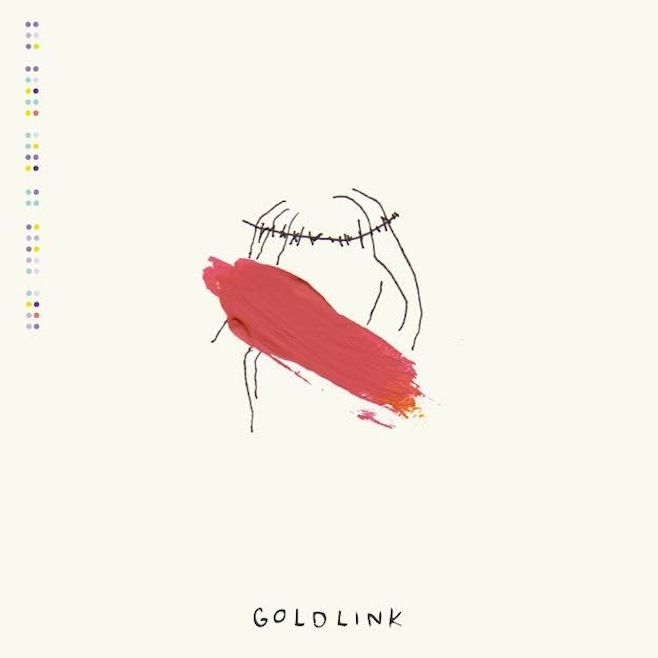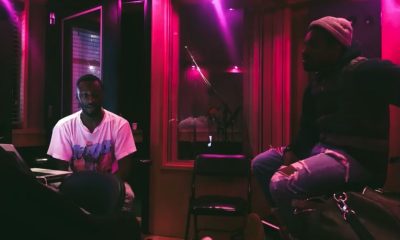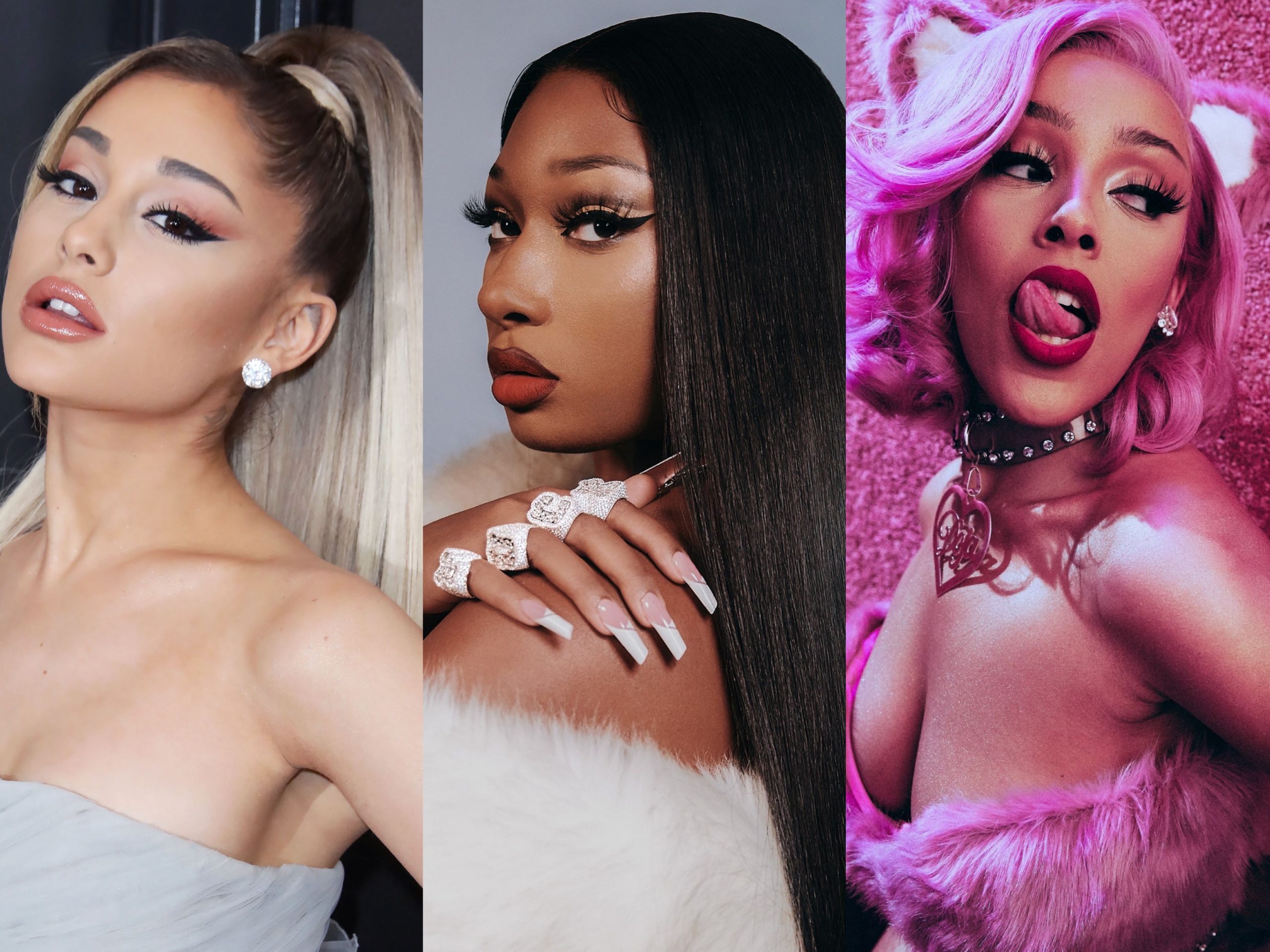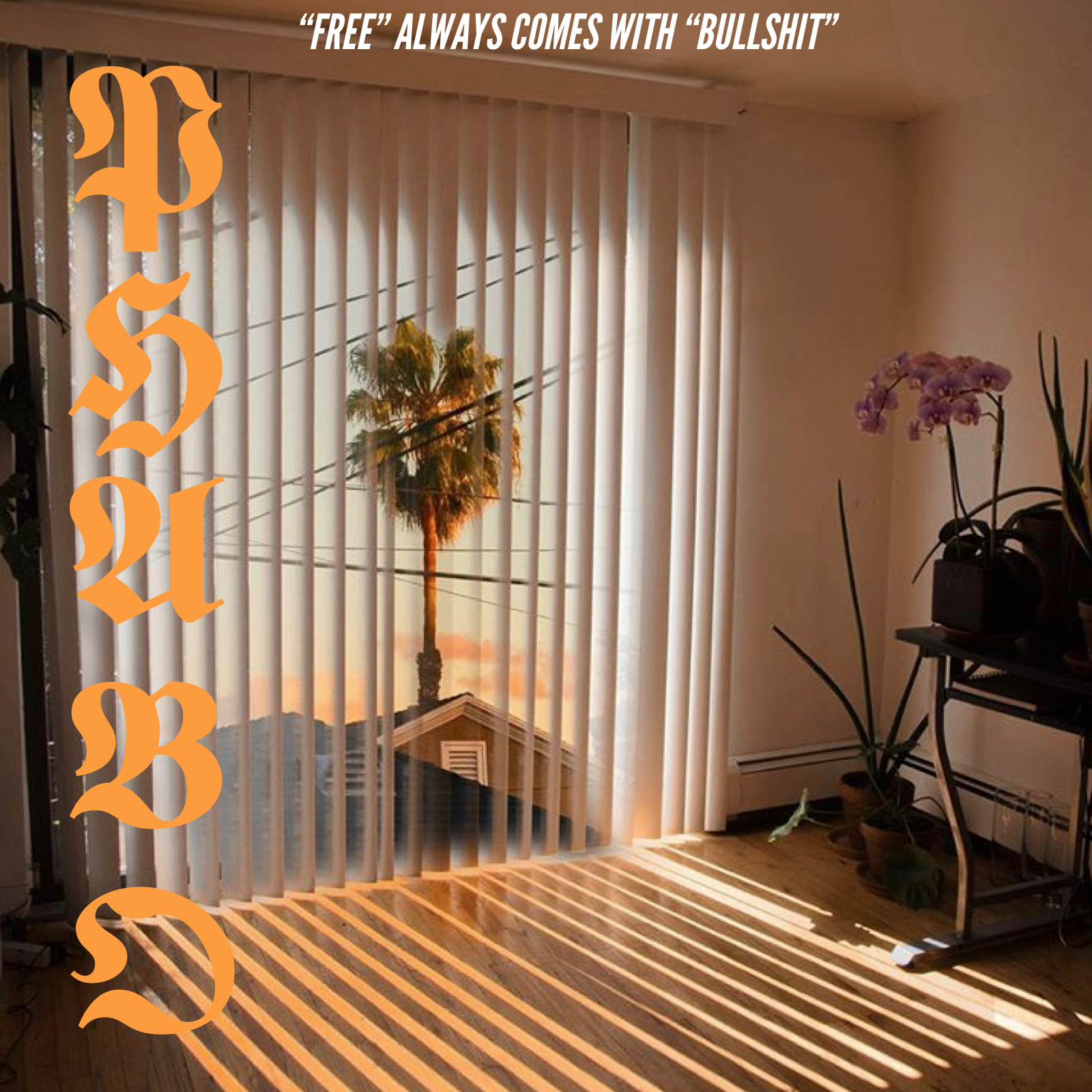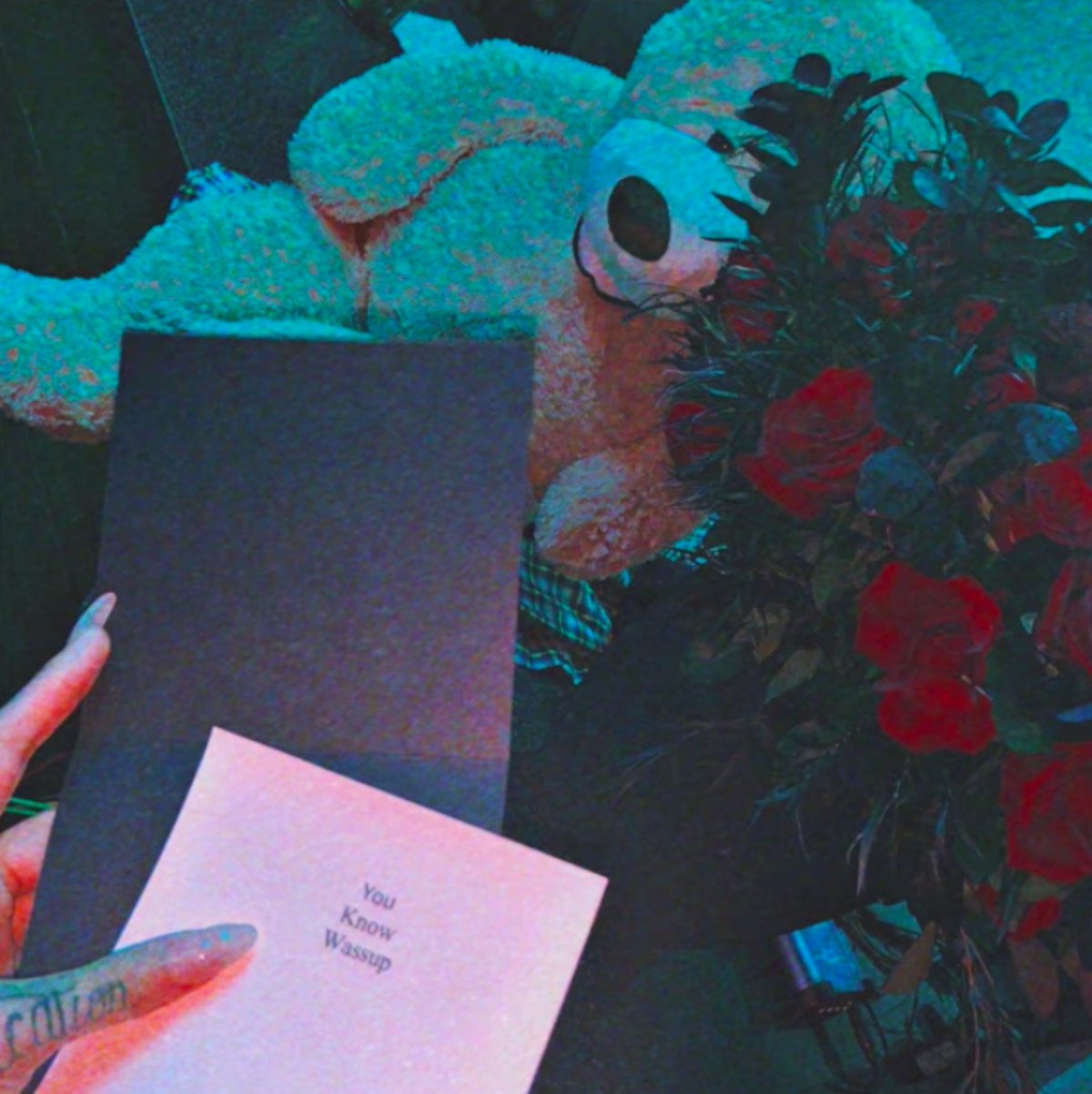While the cover art for GoldLink's debut album, And After That, We Didn't Talk suggests the sparse, the spartan, the minimal, the music is anything but.
Backed by the musical density of Soulection and company, GoldLink's latest offering supplies listeners with bouncy, shimmering brightness that is often discovered absent within our hip-hop culture.
After being named a XXL Freshman of 2015, he described his music as “electronic mixed with hip-hop,” and I am hearing nothing but facts here.
Many of the tracks here are laced with tasteful basslines, soulful backing vocals, and a painterly palette of positive, happy energy.
The production on this album is well-grounded in Chicago bounce and L.A. funk; live instruments like horns, keyboards, and drums rule the roost here. Pentatonic scales blossom and flourish without prejudice. The backing vocals soar with soul and conviction. GoldLink rides these organic grooves for all that he's worth.
GoldLink's rapping style is reminiscent of Chicago MCs Chance the Rapper and Mick Jenkins. He fluidly switches between a rapid-fire flow and an off-key, wavering singing style that the two aforementioned MCs often employ as well.
Unlike Chance, GoldLink is bereft of over-the-top ad-libs, but he's not that much better of a singer either. GoldLink's singing is definitely intended to fit his bounce vibes, so I can't hate too much on it. The singing does its job well enough, but I do wish that he turned more to spitting rather than singing, especially for many of the hooks on this record.
His subject matter is informed by his rise to fame, his proclivity to falling in love, his blackness, and his rapping pedigree. GoldLink rarely ventures from these topics, which can make for a fairly repetitive listening experience.
The opening track “After You Left” covers all of these topics, and GoldLink eschews a hook for a single verse jam-packed with impressive multi-syllable rhymes.
Mo ' money, mo ' bitches, equal no problems, My cardiac be acting funny and my soul follows, Went to go-gos, to meet hoes, wit ' no fathers, Now my path righteous wit ' a light and gold bottles
I appreciate that he opens the album with straight bars. GoldLink is an MC before everything else. His storytelling is elliptical and episodic; he covers a lot of ground with only a few bars, so it can be difficult to appreciate the fuller picture that he's trying to paint because of his inclination to elide.
During the middle third of the album, I found the subject matter to be repetitive and unrewarding to repeated listens. Songs like “Late Night” and “Palm Trees” reveal little more than their titles do, and while both songs are well-produced, I can't see these cuts getting any more attention than something to vibe to on the freeway or in the lab.
I do believe “Dance on Me” to be one of the better tracks here. GoldLink's singing plays it straight, and it vibes real well with the upbeat, stuttering synth lead. His lyrical desire for this woman fits perfectly with the energy of the track's sound. I am also loving the high-pass filter applied to the lead synth; this production flair lends a softness to the synth's edgy happiness.
I am equally impressed with the deeper cut “New Black.” The synth line is treated to a contemplative tremolo character, and I love the swing rhythm on the hi-hats. On this track, GoldLink speaks on his commitment to truthfulness and realness in his raps; I remember reading in Rolling Stone that he claims to have never lied on wax. While I find that claim to be fairly dubious as a whole, GoldLink's verse on “New Black” is the most substantive on the entire record.
His observation on the generational nature of crime and punishment is most vivid here:
My lil nigga Petey servin ' life and his lil bro, Got a baby and he left his lil ' him all alone, Remind me of his pops, and his pops was a street nigga, But a fuckin ' loser not for teaching ' his kids better
The concluding gunshots over the sounds of children playing are a chilling coda.
Overall, And After That, We Didn't Talk is a solid but somewhat repetitive listening experience. The album's svelte 11 tracks lead to a 33 minute runtime, drawing a parallel to the visual sparsity of the album's cover art.
In fact, the album art tells me a lot about the album itself.
GoldLink draws a few sketch lines, typically right in the center of the frame, throws on a huge, bright slab of primary color, but then chooses to leave the rest of the frame empty. It is certainly a pretty picture to look at, and I find the sparseness to be very attractive at first.
The face of the figure on the cover is partially obscured by paint; what lies beneath? This is what I wonder about GoldLink. He's given me a purposefully minimal portrait, and while I respect his adherence to the essential, I am left wanting something more strongly defined.
While the cover art for GoldLink's debut album, And After That, We Didn't Talk suggests the sparse, the spartan, the minimal, the music is anything but.
Backed by the musical density of Soulection and company, GoldLink's latest offering supplies listeners with bouncy, shimmering brightness that is often discovered absent within our hip-hop culture.
After being named a XXL Freshman of 2015, he described his music as “electronic mixed with hip-hop,” and I am hearing nothing but facts here.
Many of the tracks here are laced with tasteful basslines, soulful backing vocals, and a painterly palette of positive, happy energy.
The production on this album is well-grounded in Chicago bounce and L.A. funk; live instruments like horns, keyboards, and drums rule the roost here. Pentatonic scales blossom and flourish without prejudice. The backing vocals soar with soul and conviction. GoldLink rides these organic grooves for all that he's worth.
GoldLink's rapping style is reminiscent of Chicago MCs Chance the Rapper and Mick Jenkins. He fluidly switches between a rapid-fire flow and an off-key, wavering singing style that the two aforementioned MCs often employ as well.
Unlike Chance, GoldLink is bereft of over-the-top ad-libs, but he's not that much better of a singer either. GoldLink's singing is definitely intended to fit his bounce vibes, so I can't hate too much on it. The singing does its job well enough, but I do wish that he turned more to spitting rather than singing, especially for many of the hooks on this record.
His subject matter is informed by his rise to fame, his proclivity to falling in love, his blackness, and his rapping pedigree. GoldLink rarely ventures from these topics, which can make for a fairly repetitive listening experience.
The opening track “After You Left” covers all of these topics, and GoldLink eschews a hook for a single verse jam-packed with impressive multi-syllable rhymes.
Mo ' money, mo ' bitches, equal no problems, My cardiac be acting funny and my soul follows, Went to go-gos, to meet hoes, wit ' no fathers, Now my path righteous wit ' a light and gold bottles
I appreciate that he opens the album with straight bars. GoldLink is an MC before everything else. His storytelling is elliptical and episodic; he covers a lot of ground with only a few bars, so it can be difficult to appreciate the fuller picture that he's trying to paint because of his inclination to elide.
During the middle third of the album, I found the subject matter to be repetitive and unrewarding to repeated listens. Songs like “Late Night” and “Palm Trees” reveal little more than their titles do, and while both songs are well-produced, I can't see these cuts getting any more attention than something to vibe to on the freeway or in the lab.
I do believe “Dance on Me” to be one of the better tracks here. GoldLink's singing plays it straight, and it vibes real well with the upbeat, stuttering synth lead. His lyrical desire for this woman fits perfectly with the energy of the track's sound. I am also loving the high-pass filter applied to the lead synth; this production flair lends a softness to the synth's edgy happiness.
I am equally impressed with the deeper cut “New Black.” The synth line is treated to a contemplative tremolo character, and I love the swing rhythm on the hi-hats. On this track, GoldLink speaks on his commitment to truthfulness and realness in his raps; I remember reading in Rolling Stone that he claims to have never lied on wax. While I find that claim to be fairly dubious as a whole, GoldLink's verse on “New Black” is the most substantive on the entire record.
His observation on the generational nature of crime and punishment is most vivid here:
My lil nigga Petey servin ' life and his lil bro, Got a baby and he left his lil ' him all alone, Remind me of his pops, and his pops was a street nigga, But a fuckin ' loser not for teaching ' his kids better
The concluding gunshots over the sounds of children playing are a chilling coda.
Album review score out of 10
Overall, And After That, We Didn't Talk is a solid but somewhat repetitive listening experience. The album's svelte 11 tracks lead to a 33 minute runtime, drawing a parallel to the visual sparsity of the album's cover art.
In fact, the album art tells me a lot about the album itself.
GoldLink draws a few sketch lines, typically right in the center of the frame, throws on a huge, bright slab of primary color, but then chooses to leave the rest of the frame empty. It is certainly a pretty picture to look at, and I find the sparseness to be very attractive at first.
The face of the figure on the cover is partially obscured by paint; what lies beneath? This is what I wonder about GoldLink. He's given me a purposefully minimal portrait, and while I respect his adherence to the essential, I am left wanting something more strongly defined.
Production 7.5
Lyrics 7.1
Features: Masego, Anderson .Paak and Demo-Taped 5
Hype 7
Pros
- The music is upbeat, brightly produced, and playful
- GoldLink's flows are varied, aggressive, and his subject matter is accessible.
Cons
- The subject matter is fairly superficial and elliptical
- Production can sound same-y
6.6 Overall Rating

 Film & Television7 years ago
Film & Television7 years ago
 Film & Television7 years ago
Film & Television7 years ago
 12 years ago
12 years ago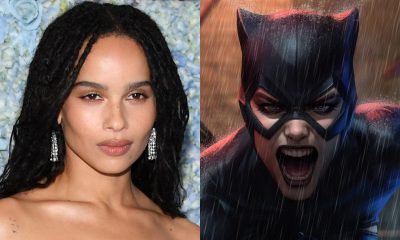
 Film6 years ago
Film6 years ago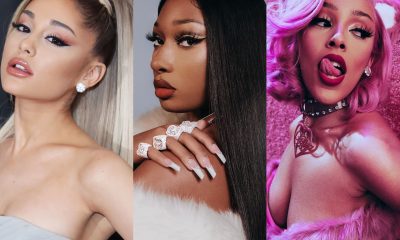
 Music5 years ago
Music5 years ago
 Music7 years ago
Music7 years ago
 Film6 years ago
Film6 years ago
